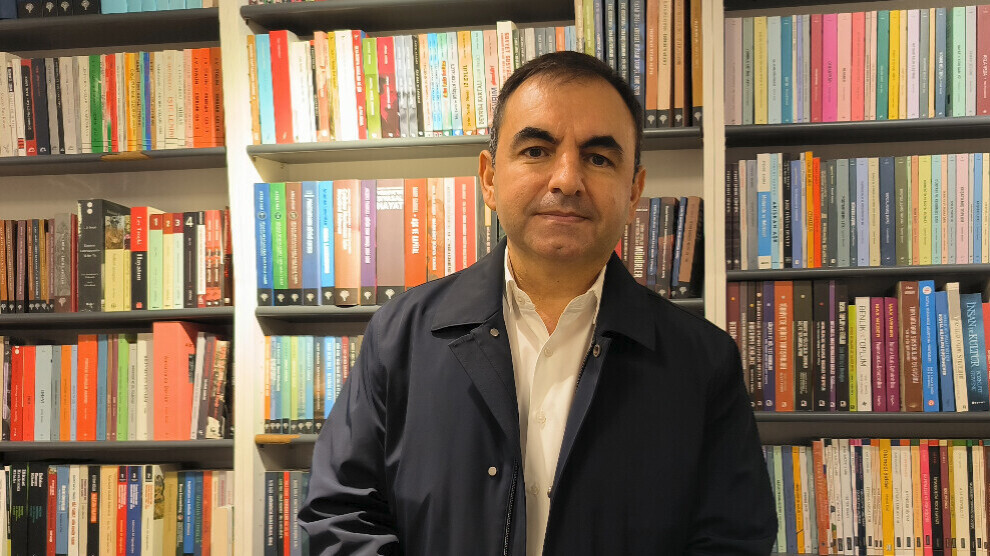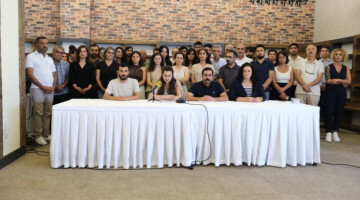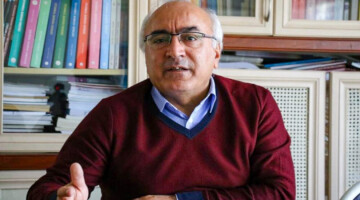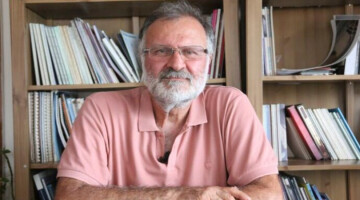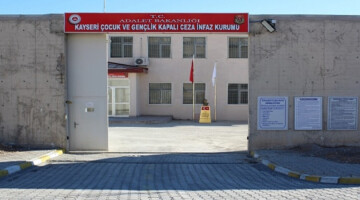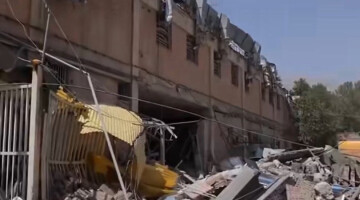The burned body of the Afghan refugee and father of three, Vezir Mohammed Nourtani, was discovered on 11 November in a forest near Zonguldak in northern Turkey. It turned out that he was a worker in MHP politician Hakan Körnöş's illegal mine. He collapsed at work. He was then severely beaten, thrown into the forest and burned there. Apparently he was still alive when he was burned, suggesting that this was probably done to prevent the illegal mine from being exposed. Körnöş was arrested along with other accomplices. They are accused of beating Nourtani to death and then burning him.
Similar cases come to light more and more often. A well-known case, for example, was that of the Syrian worker Mustafa al-Recep, whose body was wrapped in a blanket and thrown into an orange grove near Adana in 2019. The worker had died in an industrial accident, or industrial homicide to better define these accidents. However, these well-known cases are just the tip of the iceberg and show how landowners and entrepreneurs in Turkey exploit the labor of migrants to the fullest only to then “throw people away”.
Ercüment Akdeniz, journalist and expert on the working conditions of migrants, spoke to ANF about migrant workers in Turkey.
The number of fatal accidents at work has increased sharply. Migrant workers are particularly affected by this. Why is that?
After the introduction of the licensing system in Zonguldak, i.e. after the privatization of the previously state-owned companies, the proportion of unionized workers fell. This created a mafia-like structure there. Certain capital groups, particularly those associated with the MHP or various other groups, quickly grew like mushrooms. The illegal mines can be described as follows: mines or quarries are dug even in illegal residential areas. Mounds are dug up. During my visit to Zonguldak, I actually saw numerous illegal mines, whose entrances are located, for example, on the side of roads and under bridges.
On the other hand, the social structure of Zonguldak also plays a role in this context. The tradition of mining work, passed down from father to son, has now disappeared from Zonguldak.
Why?
After the labor murder in Soma, for example, only the minimum wage is paid there. It has therefore become difficult to find qualified workers who do not want to go into these illegal mines due to the lack of occupational safety and health protection.
However, people working there have no choice but to risk their lives. These are most often migrant workers. In Zonguldak it is not people from Syria but from Afghanistan who are normally employed. Of course there is a story behind it. Those who come from different regions of Afghanistan know in advance where they will work. We also saw this when a boat of migrants sank in Lake Van. It was clear where these people would work, in which workshop, in which province and where they would sleep.
Of course, if a worker loses his life, the sanctions can be very harsh, especially if he is a citizen of the Republic of Turkey and the factory does not have a license or the mine is illegal. However, if it is a migrant, there is a regulation, but not so strict. Still, there is some kind of regulation, which is why people have started to give preference to employing illegal immigrants. In the illegal mines in Zonguldak and in all other sectors in general, there is a very brutal labor regime. The relatives of those involved in accidents, if they are here, usually cannot complain, otherwise they will be deported. They are defenseless, have no rights, are at risk and are constantly threatened or deported because the mechanism of corruption extends from the security forces at the border to the smugglers to the bosses of the companies.
So the Zonguldak's case is not an isolated one?
Exactly. For example, we don't know how many migrant workers die on construction sites and are buried there without anyone knowing it, or how many people die while working in the fields and are simply thrown in a corner. These crimes demonstrate the need for re-investigation of anonymous cemeteries, deaths, autopsies and police reports. There is a political responsibility here. It is unclear whether a motion to investigate will be submitted to Parliament or whether the parties will meet, but there is great responsibility. This needs to be addressed as these events have increased noticeably and can no longer be hidden. There is strong racism here, which means that people are placed above others because of their origins. Anyone who comes from outside is treated as some kind of subhuman, regardless of their country of origin. There are citizens and locals, then there are those who cross the border illegally and are treated as if they are worth less. On the one hand, they don't want them to cross the border, and a wall is even being built to seemingly prevent migrants from doing so, although in reality it is a filter system.
What do you mean by “filter system”?
In fact, this system is about bringing as many workers as you want across the border. This illegality, marginalization or racist exclusion leads to migrants who have overcome all these barriers being forced to accept everything as sub-proletarians. And I mean, accept everything, even death. In the past, this was primarily how Kurdish workers were treated, but today it is foreign migrants. A wedge is being driven between the local workers and the migrant workers, and since the latter are exposed to extreme exclusion, they will do anything to have a job, because they need it. This is capitalism’s new migration regime. This exists not only in Turkey but in many parts of the world, but in Turkey it shows itself in a very striking way.
Officially, 32,000 people have been killed in workplace accidents since the AKP came to power. Of these, 900 are refugees or migrants. That is a very high number. Of course, the main question is how many more deaths have gone unrecorded. Regarding migrant or local workers who work in these illegal mines, we are sad to say that there is usually no news about them dying “normally”. But if you measure these events against the level of violence, then you can see that there is a very serious problem here. Because there are workers who die due to occupational diseases and neglect of the simplest precautions that can be taken.
It should be added that there are illegal mines not only in Zonguldak but also in Kınık and Izmir. Young children live in terrible conditions, and local and migrant workers die side by side. The way out lies in their joint organization and their joint struggle. Here, too, we unfortunately have to give the unions a very bad report. They only care about contributions or pushing nationalism. That suits the bosses well. I think they do this in complicity with them.
This horrific and unsafe transfer of migrant labor is leading to more and more deaths. This is the result of a global migration management strategy in which Turkey is involved. What are workers' organizations, unions and democratic forces doing against this strategy? That is the question everyone should ask themselves.

